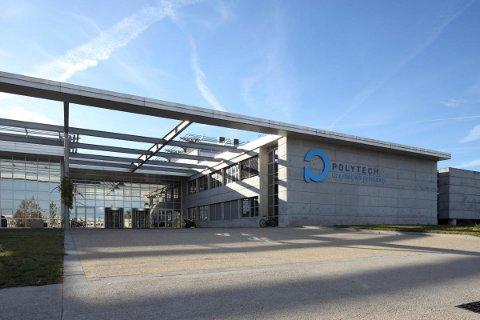Université Clermont Auvergne - Laboratoire de Physique de Clermont
Institute

Laboratoire de Physique de Clermont
Campus Universitaire des Cézeaux
4 Avenue Blaise Pascal
TSA/CS 60026
63178 Aubière Cedex
+33 (0) 4 73 40 72 72

Laboratoire de Physique de Clermont
Campus Universitaire des Cézeaux
4 Avenue Blaise Pascal
TSA/CS 60026
63178 Aubière Cedex
+33 (0) 4 73 40 72 72
What is the world made of ? What are the basic symmetries underlying the dynamics of the elementary interactions ? These fundamental questions are the heart and "raison d'être" of the research axes of our institute. The LPC (Laboratoire de Physique Corpusculaire) is one of the four laboratories linked to the Physics Department at Blaise-Pascal University. Born more than 50 years ago, it is one of the 18 french laboratories gathered into the National Institute for Nuclear and Particle Physics (IN2P3) of the french CNRS. It comprises more than 150 members among which about 60 are physicists. Its main field of research is High Energy Physics (HEP) with a large investment nowadays in the Large Hadron Collider experiments (LHC, Cern, Geneva). The Lab was formerly involved in experiments conducted at other worldwide facilities (FermiLab and TJNAF, US or Darmstadt, Germany). A part of the research concerns as well theoretical physics, from model building to the particle physics phenomenology. The LPC has also a tradition in medical physics, for which the developments made for the HEP detectors can find direct or indirect applications. Eventually, experiments in observational cosmology and astroparticle physics emerged in a recent past.
This overview of the research field, drawn with thick lines, settles the scene of the academic teaching proposal. University Blaise-Pascal offers the possibility to graduate in General Physics (Bachelor of Science). Apart from being eligible to Masters in enginery, this graduation can be followed by a first year of Master of Physics, where advanced lectures in General Physics are proposed together with an initiation to the research in Particle Physics. The second year of Master allows to specialize in High Energy Physics. The main theoretical and experimental grounds are taught from quantum field theory and fundamental symmetries to the Standard Model of Particle Physics. An internship of six months within a research lab is completing the graduation. The validation of the Master allows to apply to any PhD position.
De quoi l'Univers est-il fait ? Quelles symétries fondamentales sont à l'origine des interactions élémentaires entre particules ? Voici défini à grands traits le champ des recherches poursuivies dans notre laboratoire.
Le Laboratoire de Physique Corpusculaire est une Unité Mixte de Recherche, c'est-à-dire un laboratoire de recherche dépendant à la fois du Centre National de la Recherche Scientifique (CNRS) et de l'Université Blaise Pascal de Clermont-Ferrand. Au sein du CNRS, le LPC est un des laboratoires de l'Institut National de Physique Nucléaire et de Physique des Particules (IN2P3).
Les équipes de recherche du LPC sont engagées dans trois des quatre expériences du projet Large Hadron Collider (LHC, Cern, Geneva). Physique théorique, recherches pluridisciplinaires destinées à la physique médicale et à la physique appliquée et développements en cosmologie observationelle et astroparticules complètent le panorama des recherches conduites localement.
La plupart des chercheurs du LPC sont des enseignants-chercheurs, c'est-à-dire que, en plus de leur travail de recherche, ils enseignent à l'Université. Notre Université offre la possibilité de suivre un cursus complet de physique : Licence, Master et Doctorat.

